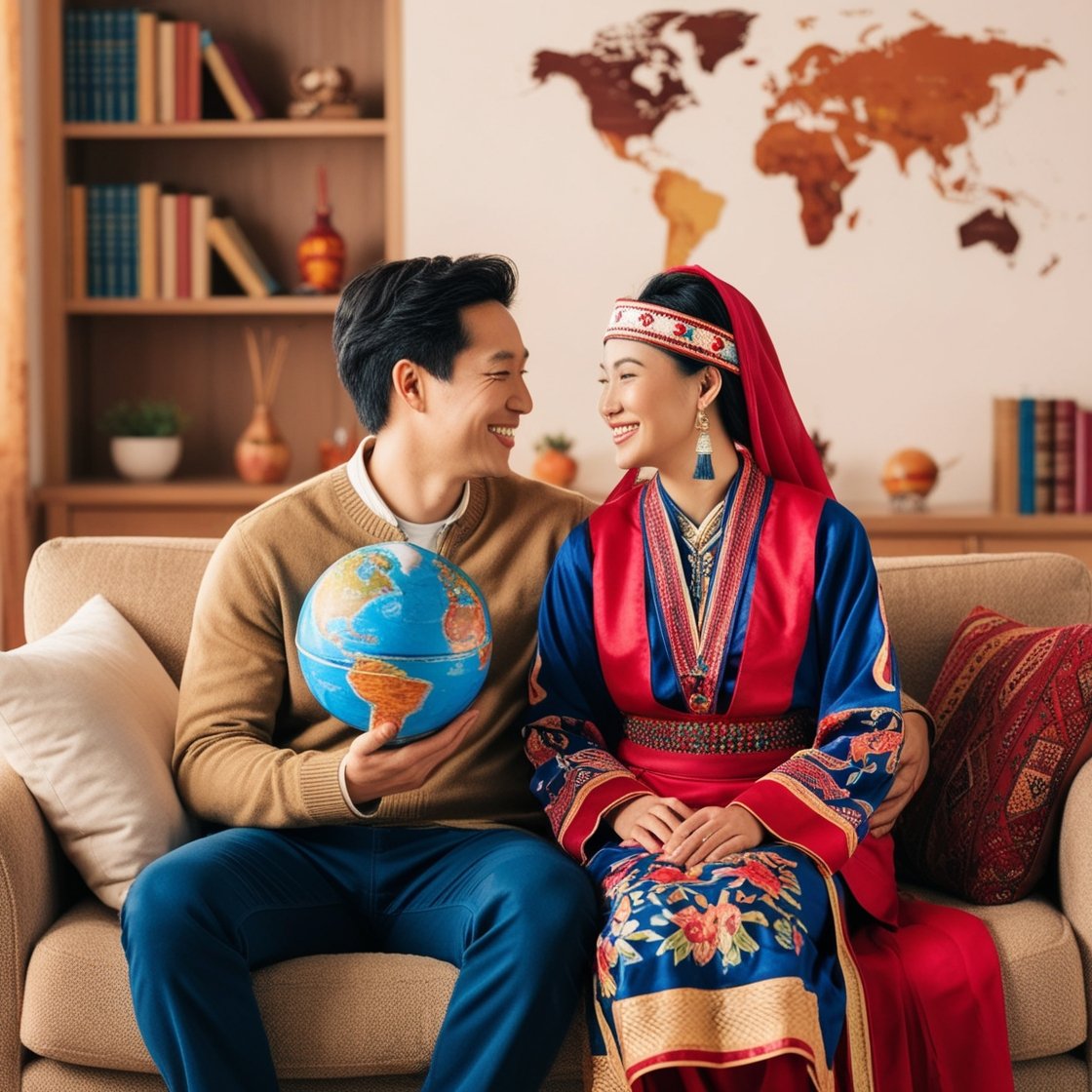Cultural Differences in Relationships are the most challenging thing in the modern world. Cultural diversity is one of the ways that God enriches our lives and at the same time makes relationships a bit more complicated. Cultural differencesThe keyword Cultural Differences is there. Differences in cultural background and relationship dynamics can affect a variety of things, from how we talk to our partners to what values and expectations shape ideas about relationships. This article is dedicated to them in the hope that they might find a way to navigate these differences and together build a loving relationship.
Cultural Differences in Relationships As Jordan Hurwitz summarizes it, we see that as more people are actively exploring the world and experiencing other cultures around them; the significance of discussing cultural differences is known to be invaluable for relationship settings. Or, if you’re dating someone from a different country or even just another cultural background than your own telling them that these are things they should eat can do wonders for building a connection. This is everything he handed down to me, it was always easy for him around the house and This guide will equip you with real strategies for accepting your relationship as itself in relation to cultural diversity.
1. Understanding Cultural Differences in Relationships
Relationship contexts are shaped by cultural differences or how we as individuals behave based on values and beliefs drawn from a certain culture. These variations may show up in language, tradition, culture, or even the way we all interact daily. Acknowledging, and having knowledge of such differences is the solution to a healthy relationship. For example, how a polite person acts in one culture could be seen as aggressive or impolite behavior in another leading to miscommunication.
Understanding the importance of how cultural differences affect relationships and how they can determine the way in which partners communicate and interact with one another is crucial. Realizing these differences can help couples learn about their partner’s culture and traditions which in turn helps them to cultivate mutual respect for one another. Realizing this prevents unnecessary conflicts from occurring and improves the quality of your relationship by adding to it those differing perspectives & experiences.
2. Communication Methods in Partnership Amidst Cultural Difference

Amongst other things, anything at all. effective communication IS the foundation for navigating cultural differences in relationships, Discussing with openness about both partners’ culture and expectations can avoid a lot of misinterpretations. It is important to provide a safe and comfortable forum for the other partner to express what they are thinking and feeling. Having this open dialogue is key to learning where one another comes from and understanding how we can expect respect.
Another important tip on how to overcome cultural differences in relationships is active listening. This includes actually listening to what your partner says and does not say, because it offers clues about the cultural sub-context. This includes making judgments based on cultural stereotypes. All of us are different and as much as culture can be influential in the development hi how we behave, it does not give us an excuse to generalize our partner or stereotype them s based on their background.
3. Respect for one another and Embracing Each Other’s Culture
One of the major steps in dealing with cultural differences galleries is appreciating and accepting each other’s cultures. For many couples, this means understanding the cultural background of your partner. Reading, watching documentaries, or getting to know other cultural events. Knowing who and where they are coming from, and what their belief systems say strengthens your level of understanding of how they react to life basically in.
Celebrating cultural traditions as a couple – you versus us style: Another successful way to celebrate the differences in relationships of cultures. Couples can bond over cultural festivals and rituals from their respective backgrounds to create a shared experience. It builds the bonds between partners and they get to appreciate each other’s culture. It takes mutual respect for one another’s differences as being essential, where you show interest in your partner’s culture and understand that it is okay to learn about something foreign.
4. Cultural Conflicts and Relationships
It is a usual event in every romantic relationship, conflicts concerning cultural differences but it can always be resolved. Family Expectations Differ: This is a major reason for grief because the expectations from families vary enormously based on different cultural and social backgrounds. Some cultures may focus on family input for personal choices, while in others individual independence is the main concern. These differences need to be discussed, and a middle ground should be found that respects both partners’ values.
When embarking on a relationship while operating with cultural differences, it is imperative to learn these concessions because they carry the threads of conflict resolution. Those are things like remaining calm, refraining from blame, and moving to solve overpuffing your chest. It is important to have the capacity to seek a compromise because it will make both partners feel heard and respected. Remember, disagreements are natural, and being able to navigate through them with empathy can be helpful in building your relationship.
5. Crafting a Collective Culture
It is a beautiful way of dealing with the cultural differences in relationships by having a common culture shared between partners. This means establishing new traditions that include pieces of each. Some of these traditions can be as easy as ways to celebrate holidays together in an unconventional manner, or easily adapting parts of each culture’s cuisine into everyday living. Cultivation of a joint cultural identity can facilitate feelings that bring couples closer together.
This is also key to establishing a unifying sense of cultural identity. Although these differences between couples are important, so too is focusing on common values and shared interests. These commonalities will establish a baseline in your relationship that can make cultural hurdles more manageable. Frequent communications and regular engagement are two natural life-enhancing elements since continuously enhancing the bond created through your journey together will keep you both feeling truly fulfilled in untold ways.

6. How Patience and Understanding Help in Handling Cultural Differences in Relationship
Patience is a fundamental virtue in relationships when dealing with cultural differences. Learning about each other’s cultures turns out to be a process. You need to give yourself and your partner some time as you go through these differences. The patient is how couples deal with cultural difficulties in a peaceful and open manner, so it benefits its family-oriented scenario.
It is vital to have a learning each-moment relationship when it comes to managing cultural differences in relationships. Mores are dynamic and constantly evolving, no one is born knowing everything there is to know about the culture they enter while dating their partner. Learning about them can be a long-term way for you to continue growing and learning – both in how well we know ourselves and what relationships look like. It, in turn, results in a stronger bond between couples as they continue their lives with curiosity and open-mindedness about each other’s cultures.
Conclusion
In conclusion, the way of maintaining these cultural differences in relationships is by understanding each other – effective communication between you and your partner about both respective cultures. Couples who take the time to try and realize our differences understand through open communication, they are able to grow stronger together by celebrating all walks of life within their own lives. Cultural differences in relationships are not obstacles, they are opportunities to enrich our experiences and make stronger bonds with others.
Prompt readers to treat relationship-oriented cultural differences as a rare learning opportunity. Couples can then navigate these differences with ease and understanding by sharing experiences, the same as before. Leave a comment with your thoughts and advice on how to deal with cultural differences in relationships.






















